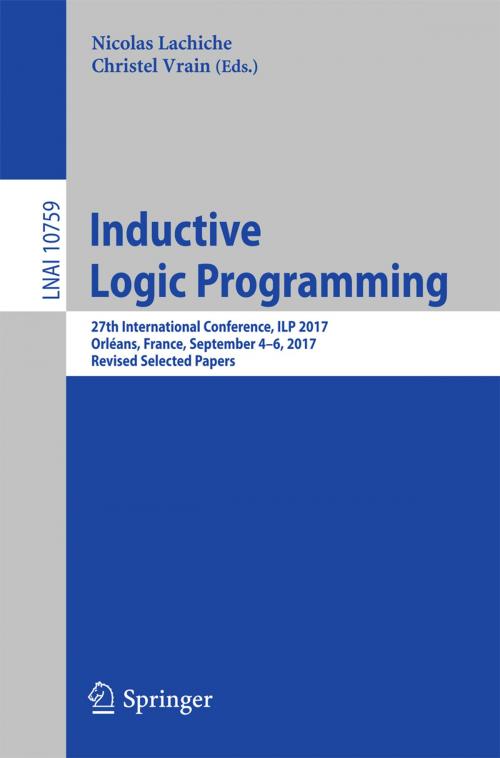Inductive Logic Programming
27th International Conference, ILP 2017, Orléans, France, September 4-6, 2017, Revised Selected Papers
Nonfiction, Science & Nature, Mathematics, Logic, Computers, Advanced Computing, Artificial Intelligence, General Computing| Author: | ISBN: | 9783319780900 | |
| Publisher: | Springer International Publishing | Publication: | March 19, 2018 |
| Imprint: | Springer | Language: | English |
| Author: | |
| ISBN: | 9783319780900 |
| Publisher: | Springer International Publishing |
| Publication: | March 19, 2018 |
| Imprint: | Springer |
| Language: | English |
This book constitutes the thoroughly refereed post-conference proceedings of the 27th International Conference on Inductive Logic Programming, ILP 2017, held in Orléans, France, in September 2017.
The 12 full papers presented were carefully reviewed and selected from numerous submissions.
Inductive Logic Programming (ILP) is a subfield of machine learning, which originally relied on logic programming as a uniform representation language for expressing examples, background knowledge and hypotheses. Due to its strong representation formalism, based on first-order logic, ILP provides an excellent means for multi-relational learning and data mining, and more generally for learning from structured data.
This book constitutes the thoroughly refereed post-conference proceedings of the 27th International Conference on Inductive Logic Programming, ILP 2017, held in Orléans, France, in September 2017.
The 12 full papers presented were carefully reviewed and selected from numerous submissions.
Inductive Logic Programming (ILP) is a subfield of machine learning, which originally relied on logic programming as a uniform representation language for expressing examples, background knowledge and hypotheses. Due to its strong representation formalism, based on first-order logic, ILP provides an excellent means for multi-relational learning and data mining, and more generally for learning from structured data.















